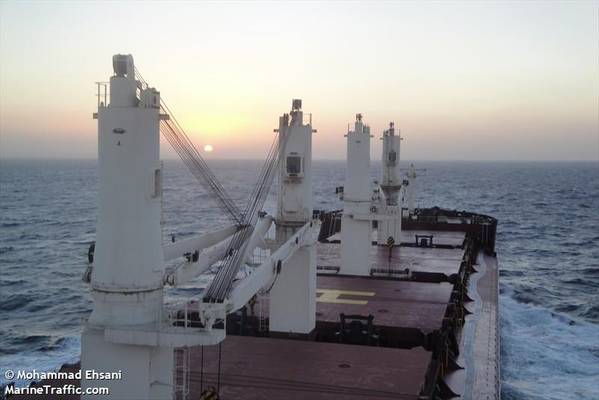
An Iranian ship called Bavand, which had been at the heart of a geopolitical spat between Brasilia and Tehran, set sail from Brazil on Monday after receiving fuel from state-run Petroleo Brasileiro , the port of Paranaguá said.
Meanwhile, a second Iranian ship, the Termeh, which set sail from Paranaguá port two days ago, was on Monday heading to the southern Brazilian port of Imbituba, where it is due to pick up a shipment of corn before heading back to Iran.
The ships were stranded after Brazil's state oil company, known as Petrobras, refused to sell them bunker fuel in the wake of U.S. sanctions against Iran. Petrobras eventually relented in the face of a supreme court ruling.
The ships' departures mark the end of a longstanding impasse. The Iranian vessels had been at the port of Paranaguá for more than 50 days, said law firm Kincaid Mendes Vianna, which represents the company that chartered the ships.
The vessels are due to return to Iran carrying a load of 100,000 tonnes of corn worth about 100 million reais ($26.5 million), the firm said.
Reporting by Gabriel Araujo



